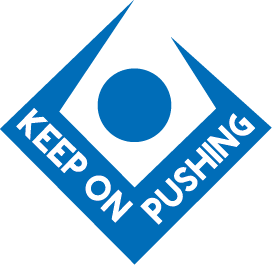In the tapestry of life, resilience emerges as the fabric that weaves strength, adaptability, and growth into the human experience. It’s the ability to bounce back from setbacks, face challenges with fortitude, and flourish in the face of adversity. Author Rick Hanson tells us that resilience is that force that helps us to survive the worst day of our lives and thrive every day of our lives. While resilience is a dynamic quality that manifests itself uniquely in each person, I would like to share four ideas on how you can build this remarkable trait.
Cultivate a resilient mindset
Resilience is not an inherent trait. It is a mindset that can be cultivated through intentional practice and a commitment to personal growth. Developing the ability to cultivate a resilient mindset is a transformative skill that will empower you to navigate adversity, bounce back from setbacks, and emerge stronger than ever.
As you know, life is inherently unpredictable. This requires you to be adaptable. Your ability to adjust your sails in the face of changing winds creates the precise environment in which resilience can thrive. Adaptability involves a willingness to learn, grow, and pivot when confronted with unexpected challenges. Being adaptable goes hand in hand with being optimistic. When you have a positive mindset you are more likely to view setbacks as temporary and surmountable. Cultivating optimism involves reframing negative thoughts, focusing on solutions, and finding silver linings even in the darkest clouds.
To further embrace this mindset, understanding the value of patience is crucial. Explore our insights on patience and its role in resilience in Be Patient with Yourself.
Develop Problem-Solving Skills
Resilience is not just about enduring difficulties but actively engaging in problem-solving.
Building resilience through the development of problem-solving skills is a dynamic process that leaves you equipped to navigate life’s challenges with strength and adaptability.
Resilience is built by taking a proactive approach to challenges. By honing your problem-solving skills, you learn to analyze situations objectively, break down complex issues into manageable components, and devise effective solutions. This also speaks to a positive mindset because obstacles are seen more as puzzles to be solved rather than insurmountable barriers.
Problem-solving is pivotal to resilience and crafting effective plans of action. Learn more about structuring your approach in Creating a Plan of Action.
Practice self-care
The concept of self-care is a no-brainer but yet, it is often overlooked.
It serves as the bedrock upon which resilience is built, forming an intricate but essential relationship between your personal well-being and your ability to navigate life’s challenges. When you prioritize self-care, you invest in your emotional, mental, physical and spiritual health, creating a robust foundation for resilience.
Engaging in practices that promote relaxation, stress reduction, and emotional well-being not only fortifies your capacity to cope with adversity but also provides a reservoir of strength during turbulent times. Additionally, self-care fosters a positive mindset, which in turn pushes you to approach challenges with optimism and a solution-oriented perspective. In essence, the daily commitment to self-care is a transformative journey during which you are empowered to not only withstand life’s storms but to thrive in the face of adversity, emerging stronger, more adaptable, and better equipped to navigate the complexities of the human experience.
Self-care is not just about avoiding mediocrity but about striving for excellence in every aspect of our lives. Discover how excellence and resilience intersect in How to Resist Mediocrity and Embrace Excellence.
Build your connections
Building meaningful connections with others has proven itself to be a powerful ally of resilience. Having a network of friends, family, and colleagues creates a safety net during tough times. The reassurance and empathy offered by these connections act as a buffer, helping to manage stress, cope with setbacks, and maintain emotional well-being.
Engaging with others offers diverse perspectives on life’s challenges through the exchange of ideas and advice. Exposure to different viewpoints serves to broaden your understanding, allowing you to approach difficulties with a more comprehensive and adaptable mindset.
The strength found in connections is a vital component of resilience. For more on navigating life’s challenges with strength, read Resilience Unveiled: Navigating Life’s Challenges with Strength.
Keep On Pushing!

